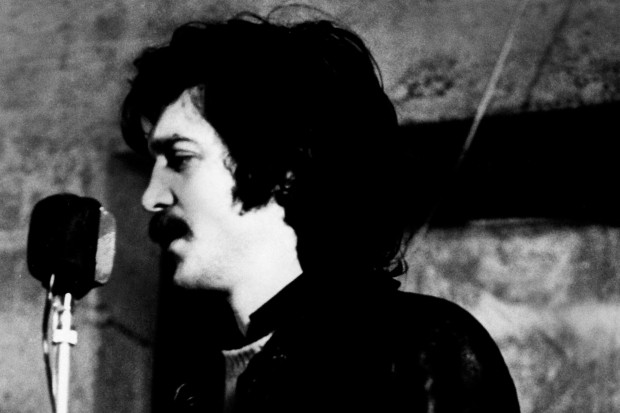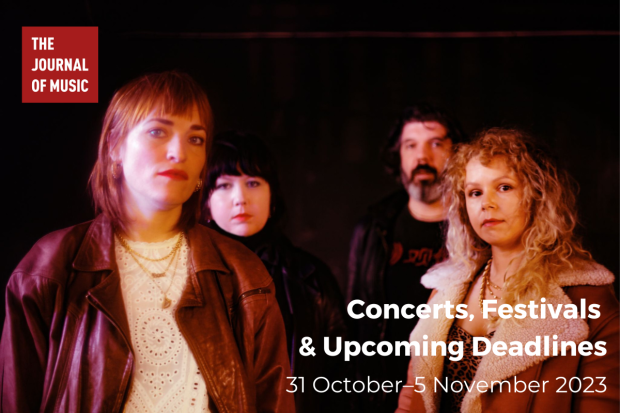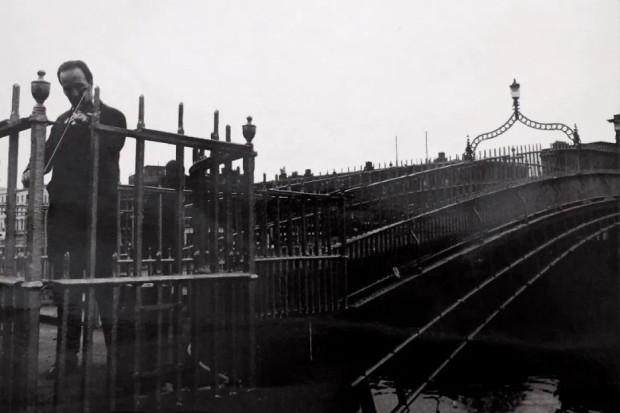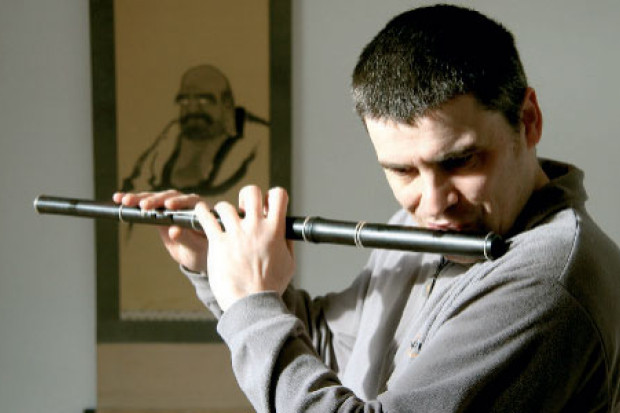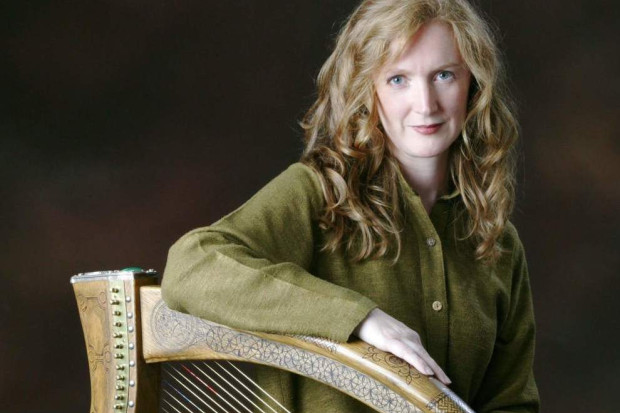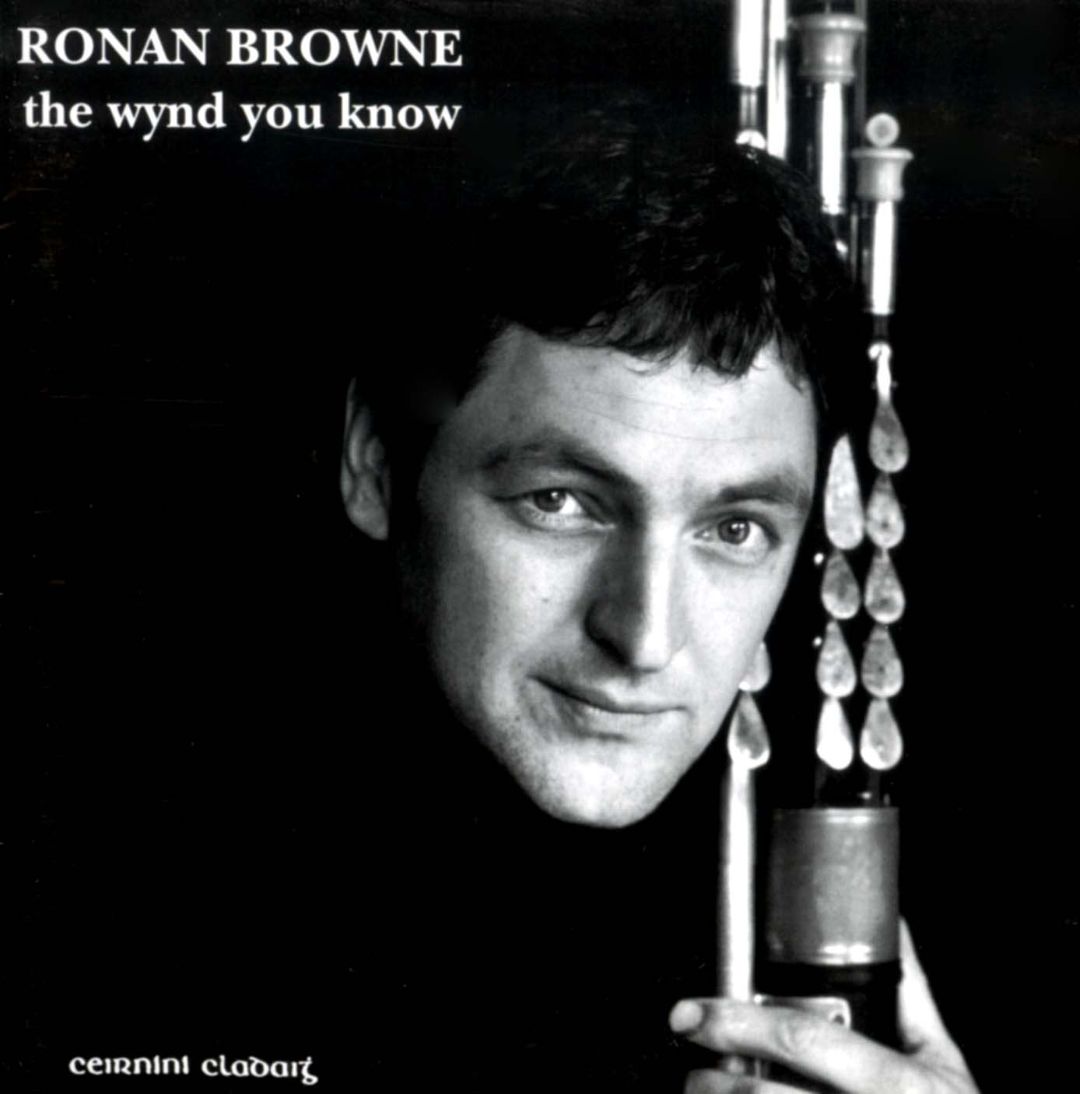
The Wynd You Know – Ronan Browne
The Wynd You Know is the first solo album by the County Wicklow based uilleann piper Ronan Browne, and released this year on the Claddagh label. The album also contains duets with fiddle player Kevin Glackin and accompaniment on harmonium by Triona Ni Dhomnaill.
Browne’s previous recorded output is varied, but fellow musicians are likely to be most aware of The South West Wind (CC47CD). This album, released in 1988, features Browne and West Clare fiddle and flute player Peter O’Loughlin, and is today viewed as a classic recording. It is a superb display of musicianship with an equally good choice of tunes. It is particularly impressive given that it emerged at a time when music played in an authentic manner with little or no attempt to a make it commercially acceptable was scarce and contrary to the fashion of the time. Browne has also recorded and performed extensively with the group Cran alongside Desi Wilkinson (flute) and Sean Corcoran (Bouzouki). More recently however, he was one of a number of pipers to have played in the Afro Celt Sound System. This radical band of musicians consists of players of Irish traditional, West African and techno music who according to themselves ‘Combine all of these elements without destroying their essence’.
And so to the album. Would it be an eclectic musical collage of all of Browne’s previous musical endeavours? Would it blend the untamed sound of the pipes with drums and chant from West Africa and a sampled techno beat? Perhaps the strains of a lonesome West Clare fiddle thrown in for contrast? No. This is an album of solo uilleann pipes and pipes/fiddle duets. A virtuous and unadulterated collection of airs and dance tunes from one of Irelands foremost pipers.
The strength in this album overall lies in Browne’s thoughtful and sensitive slow-air playing. There are a total of eight airs over fourteen tracks that range from the ‘Big song’ airs of the Gaelic song tradi¬ion such as ‘Eilionóir a Rúin’ and ‘An Raibh tú ag an gCarraig?’ to the instrumental laments ‘Caoineadh Uí Néill’ and ‘If I were a Blackbird’. The latter is a song made famous by the piper’s maternal grandmother Delia Murphy. Track six is a lament from the playing of John Doherty titled ‘Paddy rambles through the park’. The air itself is unique due partly to the alternating modality from minor to major. Kevin Glackin on fiddle joins Browne on the melody in unison with a simple drone like accompaniment on harmonium. The melody is rich, the playing sensitive – it’s a real gem.
In piping circles opinions differ greatly on the use and function of the regulators. They can be used as a rhythmic accompaniment to accentuate corresponding features in the melody, but are more often used as a harmonic device, to affirm cadences for example. Throughout his piping career, Ronan Browne has pushed the boundaries regarding their use for harmonic accompaniment. In his rendition of ‘Port na bPucaí’ (featured on the River of Sound TV series) he accompanies entire sections or parts with sustained regulator chords of unconventional harmonies. He uses the regulators in a similar fashion on this album. It is particularly apparent in the air ‘Eilionóir a Rúin’. Playing the regulators in this manner requires a considerable amount of skill and creativity, and while playing them in this way may be viewed as a little excessive by some, it is unlikely to meet with distain in any corner of that piping circle.
As mentioned earlier it is the slow air playing that is most noteworthy in this album. It would seem that there was a less fastidious approach to some of the dance music in view of the standard of the slow air playing. The playing is laboured in places, consequently the flow of the music suffers, giving the impression that the tunes are coaxed out of the set of pipes rather than played with ease. One of the better tracks however, ‘The Cat that kittled in Jamie’s wig/The Errigal reel/The Black mare of Fanad’ – a highland and two reels, is a spirited pipes and fiddle duet. It is seldom that one encounters such a feeling of unrestrained ‘let loose’ in a commercial recording.
Two tracks on the album are played on Bansuri, which, according to the New Grove Dictionary of Musical Instruments (1984) is ‘a north Indian term for flutes of various types’. In this case it is a vertical bamboo flute. A large proportion of pipers choose to play the low whistle using it as a form of padding between piping tracks. The air ‘An Raibh tú ag an gCarraig?’ is played here with gentle harmonium accompaniment. The Bansuri is far more expressive than the aforementioned aluminium tube and makes for a refreshing change.
In conclusion, the slight imperfections in some of the dance music are at surface level and do little to mar Ronan Browne’s achievement in this album. It is built on solid foundations of musical maturity and technical mastery.
Published on 1 September 2001












